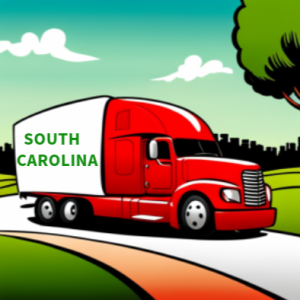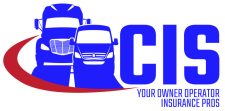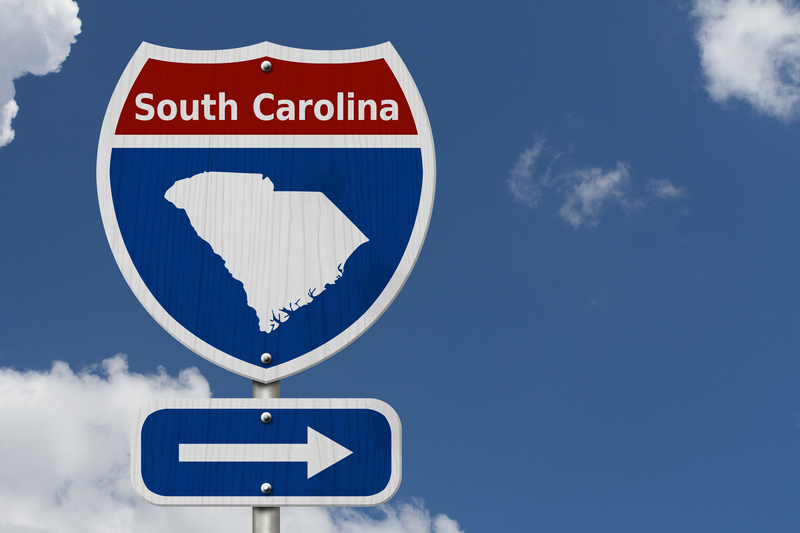Great news for South Carolina truckers! While FMCSA’s minimum Insurance Requirements still apply, premiums are finally going down now that GEICO has entered the market.
First know the basics: if you’re a motor carrier in South Carolina, you’re still required to meet FMCSA’s federal requirements.
The FMCSA (Federal Motor Carrier Safety Administration) oversees the Department of Transportation nationwide.
Interstate or Intrastate, South Carolina truckers are required to register for a Federal DOT number.
Then SCDOT comes into play.
SCDOT (South Carolina Department of Transportation) oversees trucking specific to The Palmetto State:)
Here’s a super handy link to keep bookmarked: South Carolina’s Trucking Portal.
You’ll be glad to have it!
For now, let’s break down the big picture into smaller steps:
How does South Carolina Trucking Insurance Requirements Work?
- First, you’ll register with FMCSA as a new Motor Carrier, and they’ll send you your DOT number.
- Next, you’ll buy insurance, and your insurance company will electronically send proof of your coverage to FMCSA referencing that DOT number.
- This proof of insurance is called your BMC-91X filing.
- Your MCS-90—it’s just your insurance company’s way of promising FMCSA that you’re covered.
- Your insurance company will also send proof of your insurance to SCDOT.
- During this process, you will get calls about filing your BOC-3 Form—don’t stress, it’s super simple to handle.
- Finally, within about a month, FMCSA will issue your MC number, which is your Motor Carrier interstate operating authority.
And here’s a little extra info: The MCS-90 works like a bond, ensuring public protection through your BMC-91X. That’s why you can’t cancel this type of insurance immediately—there’s a 35-day lag to notify everyone involved if coverage ends.
If you’ve got a great Transportation Insurance Specialist, she’ll help you out:)
But Don’t Jump the Gun on that DOT Registration just yet!
There’s no point in spending money on a DOT if the insurance isn’t affordable.
Give us a quick call—we’ll help you figure out what your trucking insurance might cost. It’s always a good idea to get a solid estimate before jumping into any new business. The last thing you want is to waste time spinning your wheels.
We’ll be honest with you about what your premium might look like so you don’t get in over your head. And hey, there might even be better opportunities hauling for someone else until you’re ready to get your own DOT sorted.
Once you’ve figured out your expenses and have everything in order, we’ll help you get started with: Simple Steps to Get Your Motor Carrier Authority.
Why is Commercial Trucking Insurance so Expensive for New South Carolina Truckers?
South Carolina’s commercial trucking insurance rates are relatively moderate compared to those in other states. But for new trucking startups the expense can still present a challenge.
High losses and a lack of competition has been dragging down the commercial trucking sector for years.
But there’s FINALLY some good news on the trucking insurance horizon:
The Gecko takes on Tigers & Gamecocks!:)
Yep—GEICO has officially arrived in South Carolina!
They’ve brought some super competitive rates for both new Owner Operators and seasoned motor carriers.
CIS is excited to team up with them!
You check out more at South Carolina GEICO Commercial Truck Insurance
What Insurance Limits Do Truckers Need in South Carolina?
When hauling freight for hire across state lines, South Carolina follows FMCSA minimum insurance requirements:
- For Cargo Van & Sprinter Insurance: You’ll need $300,000 CSL Commercial Auto Liability Insurance
- For Hot Shot Truck Insurance and larger vehicles: The minimum is $750,000 CSL Commercial Auto Liability Insurance
Quick tip: CSL stands for Combined Single Limit.
While the minimum gets you started, in most cases brokers and customers will ask you to provide proof of $1,000,000 CSL coverage.
It’s totally fine to start with the minimum insurance limits to get your authority, but keep that $1,000,000 number in mind.
It gives you way more flexibility with brokers and opens the door to better freight opportunities down the road.
What IS Commercial Auto Liability?
It really comes down to two main things: Bodily Injury and Property Damage.
Bodily Injury Liability kicks in if you’re at fault in an accident where someone gets hurt—or worse. It helps cover things like medical bills, rehab, funeral costs, lost wages, and even pain and suffering.
Property Damage Liability covers you if you damage someone else’s stuff—like their car, a building, or even their pet! It helps pay for repairs or replacements.
In commercial trucking, these are usually combined into something called “CSL” (Combined Single Limits).
Is General Liability Coverage the same as Commercial Auto Liability?
Commercial Auto Liability is what you need to legally drive your truck—it’s required by SCDOT and FMCSA.
General Liability is optional–it covers you for other things that can happen running your trucking business.
It’s super affordable and definitely worth having—many brokers and customers will want you to have it because it also protects them.
You can check out some examples and learn more at Commercial Truck General Liability Explained.
What other Trucking Insurance coverage do you need?
If you’re hauling freight for someone else, you’ll probably want to look into Motor Truck Cargo Insurance.
It’s not required by the FMCSA or SCDOT, but trust us—your brokers and customers are going to expect you to have it.
It protects the freight you’re hauling—but there’s a bit more to it.
You can learn more at What Does Motor Truck Cargo Cover?
Most carriers stick with the typical $100,000 coverage limit, but your Trucker Pro Agent can help you figure out the best coverage for you and when to add it.
What Kind of Insurance Covers the Truck itself?
Physical Damage Coverage is your truck’s safety net. Here’s how it works:
Collision Coverage: Got into an accident? Whether it’s another car, a pole, or your truck flipping over, this helps cover repairs or even replaces your truck if needed.
Comprehensive Coverage: This is for the non-collision stuff—like if your truck gets stolen, a tree lands on it, or bad weather (hail, wind, you name it) causes damage. Even if you hit an animal, this has your back. If it’s not a collision, this is the coverage that usually kicks in.
Your Physical Damage insurance is based on your truck’s Actual Cash Value (ACV) or the Stated Amount, so be sure to include anything permanently attached when calculating your truck’s value.
What’s considered Permanently Attached Equipment?
Here’s just a few examples to get you thinking:
- Custom paint, decals, or signage
- Bolted or mounted electronics
- Coupling devices, like 5th wheel receivers
- Vacuuming equipment and accessories
- Mounted toolboxes, shelves, or ladder racks
- Tarps, chains, and binders
So make sure you’ve got the right coverage to protect your truck—and all the stuff that comes with it!
Extra Insurance Coverage to Include in your Trucking Policy
Uninsured or Underinsured (UM/UIM)
Ever worry about getting hit by someone who doesn’t have enough insurance—or none at all? That’s where UM/UIM coverage comes in. It’s got you covered for things like medical bills, lost wages, and even pain and suffering if you or your passengers get hurt in an accident. It kicks in if the other driver is at fault and can’t cover the damages.
Medical Payments (MedPay)
MedPay’s there to help with medical bills—or even funeral costs—if you or your passengers are injured in a truck accident.
Both UM/UIM and MedPay are super affordable add-ons and totally worth including in your insurance plan.
Thinking about becoming a Motor Carrier but feeling a little lost on where to start?
Don’t worry—you’ve got this, and we’re here to help!
Check out our CIS Trucking Insurance Blog—it’s full of answers to questions you didn’t even know you had
When you’re ready to talk, just give us a call at CIS (330) 864-1511.
We love helping newbies get everything sorted so they can hit the road with all their ducks in a row!
We are CIS, and We Make Your Truck Insurance Easy!

Authors
Shelly Benisch, CIC, TRS started Commercial Insurance Solutions, Inc. (CIS) in 2002 and brings over 30 years of experience in Commercial Truck Insurance. As one of the top 25 Progressive Truck Insurance Agency Leaders in 2024, she helps Motor Carriers and Owner Operators across the country find affordable trucking insurance quotes with GEICO, Progressive and more. Shelly also writes a free Trucking Blog packed with all kinds of tips. Her team of Truck Insurance Experts have earned CIS consistent 5-star reviews and Progressive's Top 25 Truck Elite Status. For expert Commercial Truck Insurance advice, give Shelly a call at (330) 864-1511
CEO
#CISDoesThat Commercial Truck Insurance for owner operators and motor carriers.Christina Cummings, TRS certified, leads Commercial Insurance Solutions, Inc. (CIS) as Executive Director and true experienced advice on Commercial Truck Insurance. She secures the most affordable GEICO quotes and Progressive quotes...and more for small Motor Carriers and Owner Operators nationwide. She is your "go to" person at CIS for advice with underwriting questions, tips and networking opportunities for Small Truckers. Under her leadership CIS earned Progressive's Top 25 Truck Elite status in 2024 and consistent 5-Star Google reviews. She also co-authors the free CIS Commercial Truck Insurance Blog for small Motor Carriers and Owner Operators, sharing her bottom line tips on how to find more affordable Commercial Truck Insurance. Looking for expert trucking insurance advice–Christina is your go to leader at (330) 864-1511 #CISDoesThat

